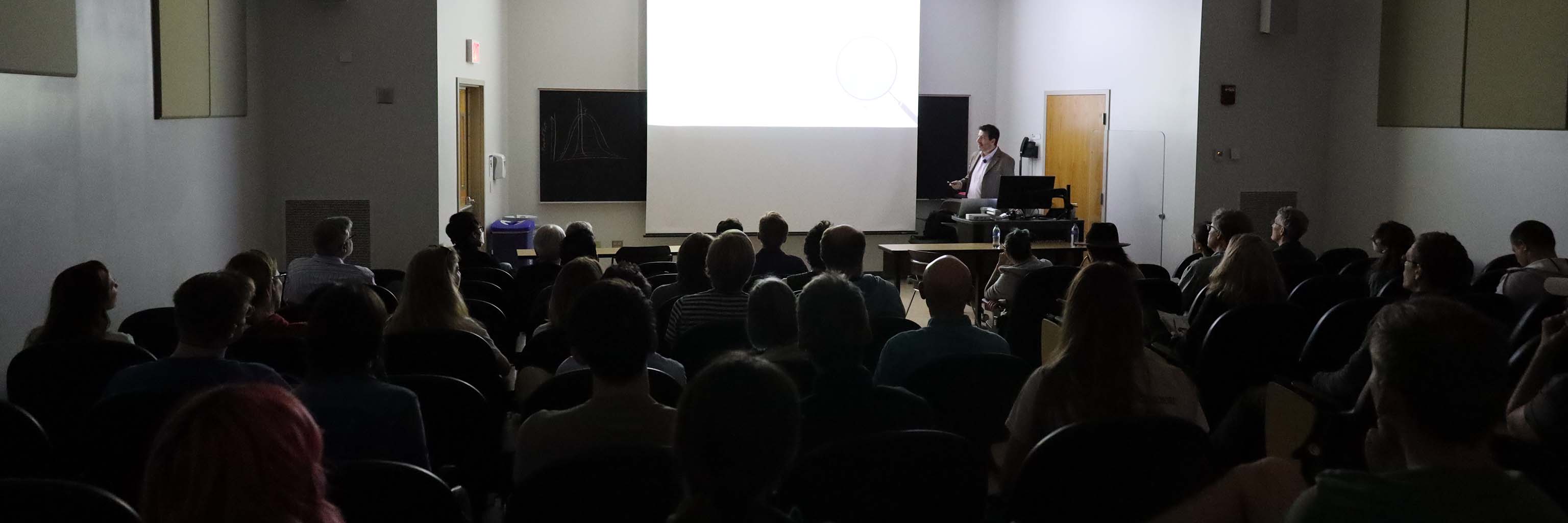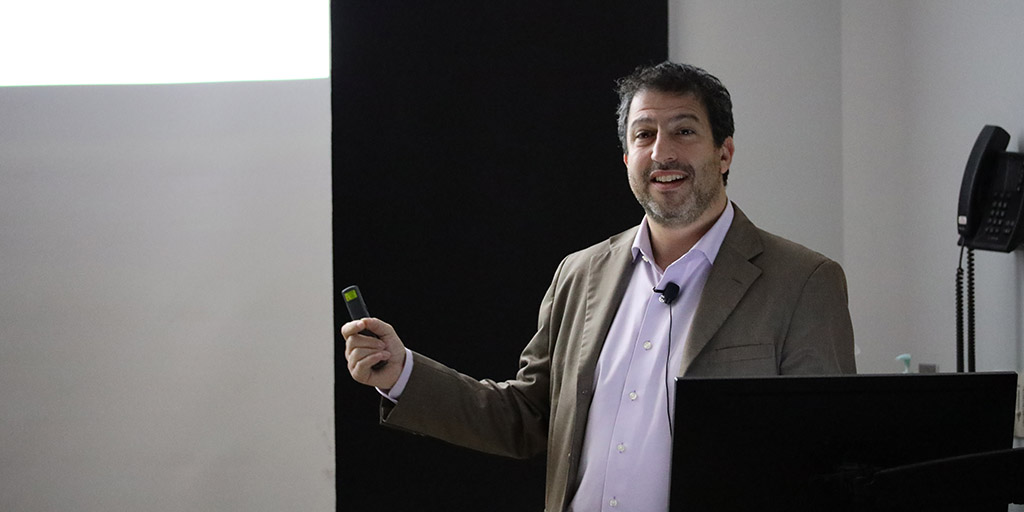Neuroscientist Adam Kepecs delivers 2023 Hearst Memorial Lecture
The legacy of PBS Distinguished Professor Eliot Hearst (1932-2018) lives on in many ways, not least in the Eliot S. Hearst Memorial Lectureship, an annual lecture established to honor the tradition of research and mentorship in the study of animal behavior that Hearst’s career exemplified so strongly.
On April 12, Adam Kepecs, Robert J. Terry Professor of Neuroscience and Professor of Psychiatry at the Washington University School of Medicine delivered the 2023 Hearst Memorial Lecture. Titled “Mistuned Brain Circuits and Broken Mental Algorithms: A Cross-Species Approach to Psychiatry,” the lecture explored the strategies he has developed to circumvent some fundamental challenges in psychiatry.





 The College of Arts
The College of Arts